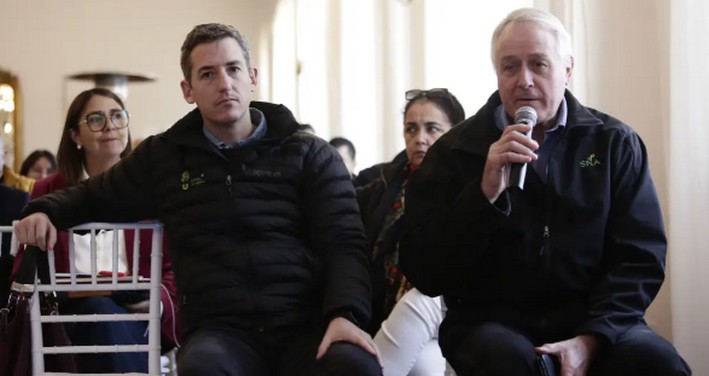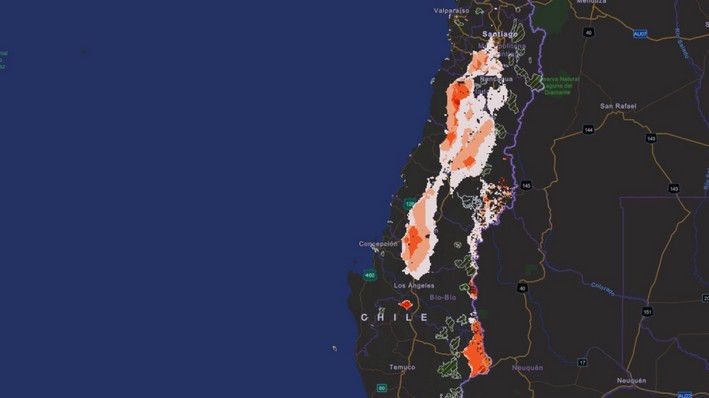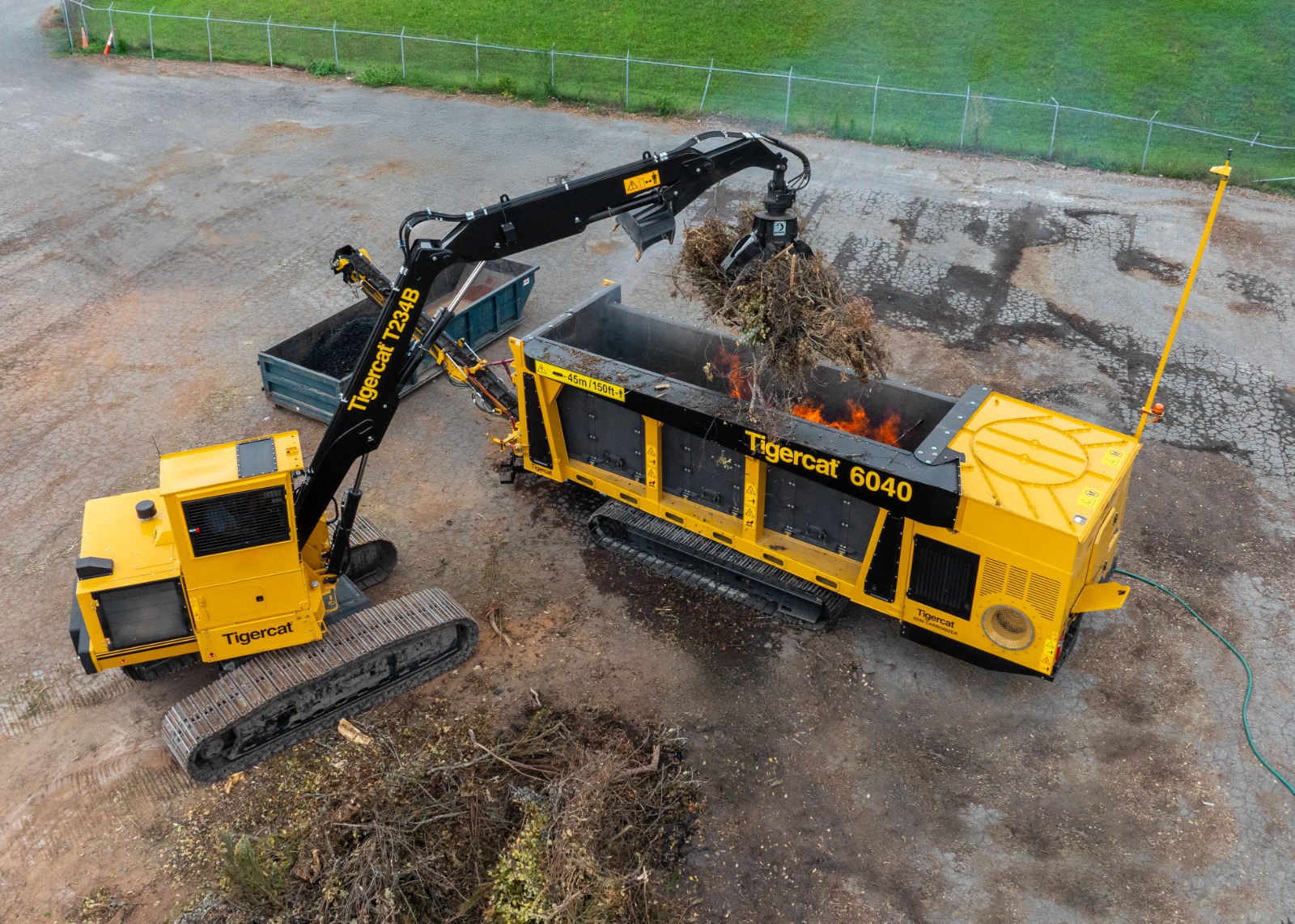The need to ensure security to revive forestry investments and the potential of wood as a tool against climate change were the clearest consensus points emerging from the second "Biobío 2050: The Forestry Future" meeting, organized by La Tribuna and held at the Club de la Unión in Los Ángeles. Participants shared reflections and agreed on the obstacles currently hindering sectoral development in the Southern Macrozone.
Gaps in rural violence permeated nearly all attendees' interventions. René Muñoz, manager of the Association of Forestry Contractors (Acoforag), was categorical: "The forestry sector is strategic today, but if we fail to establish security as a principle, everything could go to waste."
Muñoz acknowledged the sector's growth opportunities but conditioned any progress on resolving the underlying issue. "We are lost if security is not considered the most important aspect when investing, developing projects, and moving through territories," he stated.
He also highlighted how Chile has been a model of forestry development for other Latin American countries, such as Uruguay, Paraguay, Colombia, and Peru. This accumulated knowledge, he affirmed, must continue to be promoted by entities like the Chilean Forestry Institute (Infor).
From the Biobío Agricultural Society (Socabío), its president, José Miguel Stegmeier, emphasized the comprehensive perspective promoted by the event's speakers. "As farmers, we have always insisted that the rural world goes far beyond our occupation. Forestry is now a key activity for our area," he noted.
The agricultural leader stressed how coexistence between different productive sectors creates challenges requiring joint approaches. Here, he particularly underscored what he called the "half-hectare phenomenon," posing serious challenges for small landowners in reconciling their activities.
However, Stegmeier pointed out that one of the sector's biggest difficulties relates to afforestation and reforestation. "The only way to strengthen the sector is by having forests that serve as raw material for industries and small sawmills," he reflected.
Wood construction emerged as one of the most promising solutions during the meeting. Sandra Gacitúa, executive director of Infor, was emphatic: "Wood is the only noble construction material. To obtain it, we must continue planting trees that capture carbon, thereby helping mitigate climate change."
Gacitúa emphasized the need for policies that strengthen human capital and incorporate "the use of wood in public construction projects, ideally nationwide."
From a business perspective, Ignacio Lira, Corporate Affairs Manager at CMPC, highlighted the vast potential of construction using this raw material.
The meeting also featured Arturo Jorquera, deputy manager of Arauco Trading, who agreed on exploring the wide range of opportunities forests offer: "The sector can generate tremendous opportunities for employment and addressing housing needs."
He noted that wood accounts for about 20% of Chile's construction sector, whereas it could address "a large part of the housing deficit."
Consequently, Jorquera proposed broadening perspectives and considering wood for public infrastructure, such as schools and libraries, which "could perfectly be built with this material."
SCIENCE AND TECHNOLOGY
One speaker, Rodrigo O'Ryan, president of the Chilean Wood Corporation (Corma), stressed integrating scientific and technical knowledge into the sector: "Data kills narratives. We work with this information and need it for both management and implementing improvements."
In this field, he stated that AI and big data could streamline tasks like "biodiversity monitoring, tree growth, logistical efficiency, and productivity."
Meanwhile, Corma Biobío-Ñuble manager Margarita Celis added a perspective encompassing sustainability, community relations, and gender equity. "There is no sustainability without environmental, social, and economic integration in balanced, inclusive development," she asserted.
The regional representative highlighted Corma's "Más Mujer" program, aiming to increase female labor participation to 20% by 2026 across the forestry supply chain.
INSTITUTIONAL ROLE
The panel also included Conaf’s regional director, Esteban Krause, who noted the event allowed "reflection on what lies ahead" and underscored forestry's role in "mitigating climate change."
He praised the creation of the National Forestry Service (Sernafor), which he believes will foster conditions for the sector to remain economically significant while integrating technology.
Regional councilor Juan Carlos Villanueva highlighted participants' openness to dialogue and offered the Regional Government's support for La Tribuna’s upcoming meeting on "wood construction and technology integration in wood-derived products."
PROJECTIONS AND LEARNINGS
La Tribuna and Radio San Cristóbal director Claudia Fuentes moderated the expert panel and closed the event by thanking the high turnout. "We are holding these events more frequently. Soon, in July, we’ll address other facets of wood," she announced.
Fuentes noted the meeting's high engagement: "It was hard to close because the audience had many questions. Everyone wanted to be part of this space."
She reiterated that fostering such discussions aligns with her media outlet's mission: "We aim to convene audiences to participate in future activities involving diverse sectors."
Fuentes confirmed the Biobío 2050 series will continue with sectoral meetings throughout the year, maintaining its long-term focus.
Source:La Tribuna







Comments (0)
No comments yet. Be the first to comment!
Leave a comment